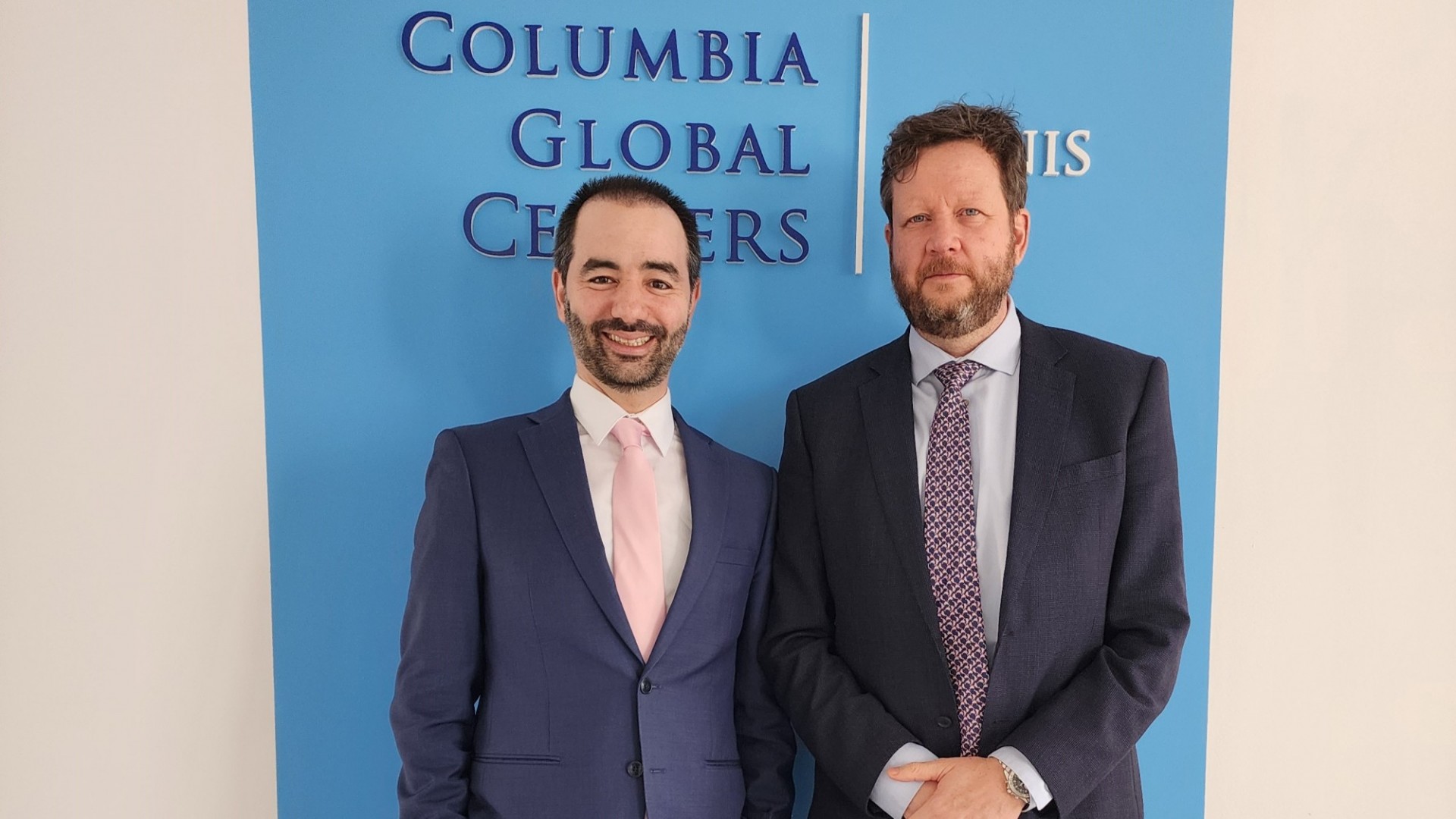Pr. Eric Verhoogen Visits the Tunis Center

Professor Eric Verhoogen, Professor of Economics and International and Public Affairs at Columbia University, and a member of the Faculty Advisory Committee of CGC Tunis, recently paid a visit to the center.
Professor Verhoogen's visit to Tunisia was centered around a seminar held at CGC Tunis, where he unveiled the results of a groundbreaking project funded by Columbia University President's Global Innovation Fund (PGIF). The project, titled "Evaluating an Export Promotion Scheme in Tunisia," was led by Professor Verhoogen and aimed to delve into the intricacies of Tunisia's export landscape.
During his visit, which took place this January, the Columbia professor engaged in discussions surrounding the next steps of the project and explored potential future collaborations with the Center. The focus was keenly directed towards the economy of Tunisia and the broader region. The seminar served as a platform to share insights garnered from the research initiative and to foster dialogue on the implications for economic policy and development strategies in Tunisia.
The visit of Professor Verhoogen underscores the commitment of Columbia Global Centers | Tunis to facilitate innovative research and academic collaboration aimed at addressing pressing economic challenges. As the findings of the PGIF project continue to unfold, they are poised to inform policy decisions and contribute to ongoing efforts aimed at fostering economic growth and sustainability in Tunisia and beyond.
More about the project:
To promote export diversification, the Tunisian government is implementing a $22 million export matching grant scheme, TASDIR+. TASDIR+ aims to increase exports and promote export diversification toward higher value-added exports and new markets. Working closely with the Tunisian government export-promotion agency (CEPEX), this study uses a randomized controlled trial to evaluate TASDIR+’s traditional matching grant scheme and a newly implemented rebate scheme. Under the traditional matching grant scheme, eligible firms receive a 50% cost subsidy for eligible export-related expenses. Under the rebate scheme, available to agriculture/agribusiness / trading firms, eligible firms receive the 50% cost subsidy and a pay-for-performance rebate based on the firm’s export performance in new markets. These subsidies are being distributed randomly to eligible applicants.
The two questions the project seeks to answer are: (i) does subsidizing a firm’s export business plan or office abroad help firms export to new markets or export new product variety? and (ii) do export rebates encourage firms to increase export volume, export new product varieties, and/or export to new (advanced) markets? While both export subsidies and matching grants are popular policy tools, to date there is very little rigorous evidence on their effectiveness, a gap this proposed impact evaluation aims to address.